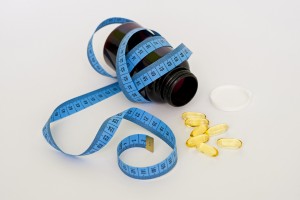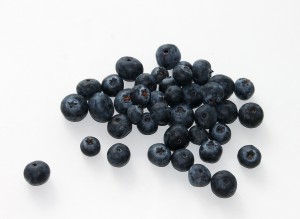As our country gains weight at an alarming rate, we are spending more each year on products that promise us easy, effortless weight loss. Each year in the United States, an estimated 35 billion dollars is spent each year on weight loss products. The problem is that in spite of headlines that feed our hopes that a new, secret, “better” weight loss formula has been discovered, the truth is there are no easy solutions to losing weight.
How To Avoid Common Diet Scams
Simply put, weight loss is a combination of lifestyle choices, and is the result of a firm commitment to making and maintaining them over a period of time. Any products that offer weight loss without reduced caloric intake and increasing activity levels are fraudulent- and a waste of money.
Why Do People Buy Products That Are Scams?
Denise Bruner, MD, MPH, FASBP is a specialist in weight loss, and a fellow in the American Society of Bariatric Physicians. She shares one of the major reasons that weight loss scams flourish today: “We live in a society today that wants immediate gratification. This is reflected in our willingness to buy from those that promise ‘instant results’”.
The increasing obesity in our society, and hopes that weight loss can be achieved without lifestyle changes fuels the growth of frauds. Bruner states, “In the U.S., currently 61% of the population is overweight, and the numbers are going up. There’s a huge market out there for weight loss products. After all, it appeals to us to find out that you can ‘Lose 30 pounds in 30 days.’ We don’t want to have to deprive ourselves of our favorite foods, and want something that will ‘magically’ absorb the calories.”
Jeannette Kopko, Senior Vice President of the Better Business Burea u for Dallas and Northeast Texas, agrees that illegitimate weight loss products feed on false promises: “People are fooled by these scams because they hope that they aren’t scams. They hope that they’re real, and are an easier, faster, painless way to lose weight.”
u for Dallas and Northeast Texas, agrees that illegitimate weight loss products feed on false promises: “People are fooled by these scams because they hope that they aren’t scams. They hope that they’re real, and are an easier, faster, painless way to lose weight.”
With the huge demand for weight loss products (and their revenues), companies are more than willing to become suppliers-whether or not their products work. Kopko states, “The number of companies hawking bogus supplements and weight loss products is increasing rapidly in recent years.”
How can you spot a weight loss scam?
Typically, weight loss scams make promises that aren’t realistic. Headlines that promise weight loss without dieting are always scams, since calorie reduction is the basis of any true weight loss program. There are no legitimate weight loss programs that allow you to “eat whatever you want” without limit. As Monica Revelle, public relations specialist at the FDA notes: “If it sounds too good to be true-it is!”
Other tips offs that the weight loss product is a scam include:
* Claims to be a “secret” formula: Products that claim to have secret formulas are scams. Dr. Bruner feels strongly on this issue, and states, “There are no ‘secrets to weight loss’ being held away from the public. In America alone, an estimated 100 people a day die from obesity; we could prevent 300,000 deaths annually if there was a real product that made weight loss simple and safe, and physicians would be the first to prescribe them.”
* There’s no physical address for the business. Legitimate products and services will have a physical address and phone number. Be wary of those that only offer a mailbox, or a toll-free number to call manned by “help center” personnel. Kopko shares, “While not all companies that have P.O. or private mail boxes (PMBs) are illegitimate, plenty are. Check to see if there are the letters ‘PMB’ after a physical address; this indicates that it’s really a private mail box, that can forward mail to anywhere in the world.” She adds that the Internet is also being used to promote frauds, and adds, “You can’t judge how good or legitimate a product is by how professional the web site looks. This only reflects how good their web designer was.”
* They promise rapid weight loss. Weight loss that is too rapid is not only unhealthy, but is normally quickly regained. The best plans advocate moderate goals, with slow, steady weight loss of about 6-8 pounds a month over a long period. Dr. Bruner states, “Any product that offer overnight or rapid changes is a fraud.”
* They state that they can help a person lose fat or cellulite in a specific part of the body. Body fat is lost overall, not in a spot, and ads that claim otherwise are frauds.
* They promise permanent weight loss. No product can do this, since permanent weight loss is maintained by lifestyle changes.
By avoiding products with the above “red flags” in their advertising, you can protect yourself from illegitimate products-and save money.
Types of Weight Loss Scams
Weight loss scams can range from the highly illegal (and even dangerous) to the mildly unethical. Kopko states, “There are degrees of fraud and misleading consumers. Some are scams where the person doesn’t receive anything at all when they send in their money. Another form of scam is when the customer sends in money, and they get a product that has no benefit, such as a sugar pill.”
Other weight loss scams use questionable practices, such as making claims for an ingredient-but without scientific studies to back them up. Kopko adds, “In yet other scams, the product has very low levels of active ingredients, so the person doesn’t get the desired result.”
Some products sell because their names are similar to real products-even though they don’t contain the same ingredients or quality. Dr. Bruner warns that these knockoffs are frauds: “The person thinks, ‘Oh, I can get this a lot cheaper here…’ but be careful, and check it out thoroughly first.”
Kopko has seen all types of weight loss scams during her years with the Better Business Bureau. She remembers, “Years ago, in our area, there was a business that sold ‘weight loss glasses’; one lens was blue, the other brown. Supposedly, the two colors ‘confused the brain’ and the person didn’t get hungry.” She adds, “Another fraud was weight loss “bath powder’ that a person pours into the tub, that promised weight loss.”
Today, popular scams are pills, powders, patches, and herbal teas that supposedly promote weight loss.
One recent scam was a powder taken a few hours before sleep. Kopko states, “It promised that the fat would “melt away” while you slept. The only benefit was that the person gave up their bedtime snack when they took it; there was nothing in the powder to help. And the person who bought the powder was then deluged with other products from the company that would ‘make the product work better.’ It was all a huge fraud.”
Dr. Bruner has also seen a variety of weight loss scams over the years. She states, “I’ve seen people wearing inserts in their shoes; the manufacturers claim that they hit pressure points to relieve hunger (it doesn’t work). Another scam is a ‘“chocolate patch’ designed to reduce cravings for chocolate, or wearing special clothing to spot reduce areas.” She notes that in Europe, another popular weight loss fad is getting attention: “In Europe, right now mesotherapy, injecting a drug into the muscle, is a very popular fraud.”
FTC’s sokesperson Shirley Rooker notes that the FTC recently stopped another popular weight loss scam-and the company was forced to pay back millions to consumers taken in by its fraudulent ads. She notes, “The Enforma System claimed that its products increase the body’s capacity to burn fat and would help the body burn more calories while just standing or sitting around doing nothing, even while sleeping. And the TV ads stated that consumers could enjoy fried chicken, pizza, and other high-calorie, high-fat products and still lose weight. The FTC complaint charged that there was no proof that Fat Trapper and Exercise in a Bottle really worked.”1
Why Aren’t They Stopped?
With the huge numbers of weight loss frauds out there (it only takes opening up a magazine, or surfing the Internet to view some), the question of why they are allowed to continue is raised.
Kopko says, “I get a lot of calls from people who ask, ‘Why isn’t something being done?’ about a scam. Basically, the answer is: until we receive complaints, a fraud can’t be investigated.” She adds that many times, people who are scammed don’t file reports. “They don’t want the bother, or they don’t know where to turn. The complaints we get are probably only a fraction of the problem that’s out there.”
She warns that not being shut down is not a guarantee of reliability. “Just because a business is out there, selling weight loss products doesn’t mean they’re legitimate; it may just be that they haven’t been caught yet. This is why it’s so important to be an aware consumer. “
Once complaints are made, law enforcement will step in and start investigating weight loss frauds. They often prosecute illegal businesses, and force them to make restitution to their victims. But Kopko shares that not every questionable weight loss product can be dealt with in this manner: “Some scams might not be illegal-just unethical. They market their products in a way that implies benefits, instead of stating them outright, and skirt the legal boundaries of false advertising.”
In some cases, stopping a fraud takes time because of the decision over who has jurisdiction, and the time needed to gather the data to begin prosecuting a company. For instance, the FDA’s Moica Revelle states that they only have jurisdiction over scams in which a product is proven to be unsafe. “We monitor the quality and safety of weight loss products; but we don’t have jurisdiction if there’s no evidence of harm done.”
In many cases of false advertising, the FTC steps in, and uses information gathered by other agencies to make their case against a company. Kopko states that the Better Business Bureau, while not having jurisdiction itself, make their task easier. “We keep information about businesses on file, including complaints against them, and share this with law enforcement and government agencies.”
How To Protect Yourself From Scams
One of the best methods of protecting yourself from weight loss scams is to seek medical advice from a qualified physician who specializes in weight loss (bariatric medicine). At times, this means first coming to terms with a realistic view of weight loss. Dr. Bruner states, “Losing weight isn’t simple or easy.
Basically, it means reducing calories and exercising, but it must be individualized to the person’s needs. For instance, the person with insulin resistance needs a higher protein, lower carbohydrate diet so they won’t feel that they’re starving; and those with allergies (such as to wheat or yeast) will need a diet that avoids these items.”
To protect yourself from scams, check the product out first with your physician. And if possible, try to avoid “impulse buying”. First investigate the product and the company’s reliability with consumer organizations. This can save you needless expense and disappointment in the long run.
Another method of avoiding scams is to visit sites that investigate consumer frauds-and check out a company before buying. Kopko states, “The Better Business Bureau is a participant with the Sentinel Database (online at www.consumer.gov/sentinel ) which allows consumers and law enforcement to view trends and complaints against businesses. You can also go online to our national web site at www.bbb.org to check out a company nationally. Just click on the “consumer info” link, and look up diet fads and scams that have been reported.”
Weight loss scams are on the rise, and the numbers of companies using fraudulent advertising are multiplying. By taking the time to carefully investigate a company and its products, and choosing to work with a qualified physician on your weight loss goals, you can save yourself needless expense and disappointment. Best of all, you can get started on the road to real, achievable weight loss goals while maintaining good health.
 u for Dallas and Northeast Texas, agrees that illegitimate weight loss products feed on false promises: “People are fooled by these scams because they hope that they aren’t scams. They hope that they’re real, and are an easier, faster, painless way to lose weight.”
u for Dallas and Northeast Texas, agrees that illegitimate weight loss products feed on false promises: “People are fooled by these scams because they hope that they aren’t scams. They hope that they’re real, and are an easier, faster, painless way to lose weight.” Have you ever waltzed into your friendly neighborhood Nutrition Store or frantically surfed the worldwide web searching for that elusive miracle pill, deluding yourself into believing that maybe, just maybe, it would somehow magically transform your so-called body into the next Brad Pitt or Angelina Jolie? Or perhaps you want pecks like Arnold. Or the energy to leap tall buildings in a single bound. Or heck, maybe you’d simply settle for enough energy to pry your sleepy little self out of that comfy bed as your annoying alarm clock goes berserk Monday morning, like a runaway freight train on steroids. If so, then you’ve probably encountered a severe mega-dose of chronic overwhelm. Yikes! We are continually bombarded with a never-ending avalanche of pills and potions. Plus, you’d almost need the bank account of Bill Gates or Donald Trump to afford the buffed-up body you’d “really” like to have. Meanwhile, Madison Avenue persistently insists that you won’t be able to live with yourself until you finally succumb to today’s latest nutritional fad.
Have you ever waltzed into your friendly neighborhood Nutrition Store or frantically surfed the worldwide web searching for that elusive miracle pill, deluding yourself into believing that maybe, just maybe, it would somehow magically transform your so-called body into the next Brad Pitt or Angelina Jolie? Or perhaps you want pecks like Arnold. Or the energy to leap tall buildings in a single bound. Or heck, maybe you’d simply settle for enough energy to pry your sleepy little self out of that comfy bed as your annoying alarm clock goes berserk Monday morning, like a runaway freight train on steroids. If so, then you’ve probably encountered a severe mega-dose of chronic overwhelm. Yikes! We are continually bombarded with a never-ending avalanche of pills and potions. Plus, you’d almost need the bank account of Bill Gates or Donald Trump to afford the buffed-up body you’d “really” like to have. Meanwhile, Madison Avenue persistently insists that you won’t be able to live with yourself until you finally succumb to today’s latest nutritional fad.








